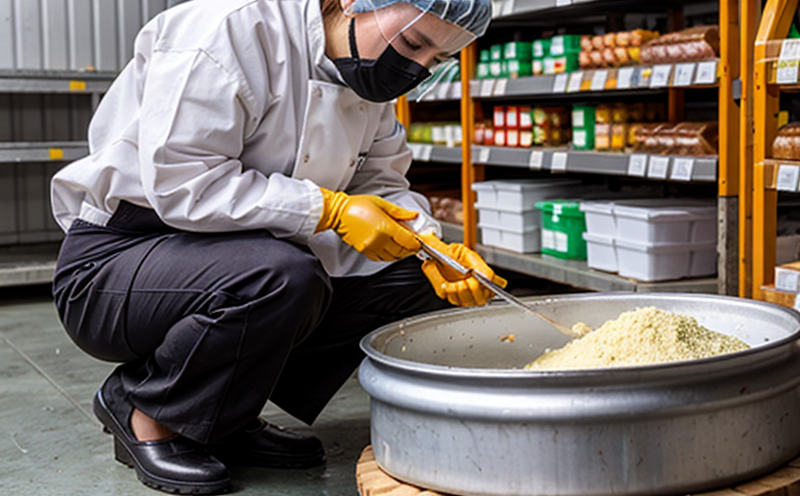Food contact material inspection
In today's globalized food industry, ensuring that materials in direct contact with food meet strict safety and hygiene standards is paramount. Food contact materials (FCMs) encompass a wide range of items such as packaging, containers, utensils, and other equipment used to store or serve food. The integrity and quality of these materials directly impact the safety of the end product, influencing consumer health and trust.
Our laboratory provides comprehensive inspection services for FCMs, ensuring that they are not only safe but also comply with relevant international standards such as ISO 21574:2018. This standard sets out requirements to ensure food safety during the manufacture of plastic articles intended for use in contact with food. Our team of experts is dedicated to providing reliable and accurate testing, leveraging advanced analytical techniques.
FCM inspection involves a series of tests designed to evaluate various properties and characteristics critical to food safety. These include leaching analysis (detection of harmful substances that may migrate from the material into the food), microbiological examination, chemical composition analysis, mechanical integrity checks, and more. By adhering strictly to international standards, our lab ensures that FCMs meet the highest level of safety.
Our approach to testing is both rigorous and precise, employing state-of-the-art equipment and methodologies tailored to each specific material type. This ensures consistent results across different samples and batches, providing clients with confidence in their supply chain decisions. Our laboratory's expertise extends beyond mere compliance; we also offer consulting services aimed at helping companies design safer FCMs from the outset.
Understanding the importance of food safety is crucial for all stakeholders involved—from manufacturers to distributors and retailers. By leveraging our extensive experience and cutting-edge technology, we empower businesses to make informed choices about their FCM suppliers while maintaining regulatory compliance.
Scope and Methodology
| Test Parameter | Description |
|---|---|
| Leaching Analysis | Detection of substances that may migrate from the FCM into food. |
| Bacterial Growth | Evaluation of bacterial contamination levels in contact materials. |
| Chemical Composition Analysis | Detailed examination of the chemical makeup to identify potential hazards. |
| Mechanical Integrity Checks | Evaluation of material strength and durability under various conditions. |
The methodology employed in our FCM inspections is designed to cover all critical aspects that could affect food safety. Our lab uses a combination of laboratory tests, field studies, and simulations to ensure thorough evaluation. We employ advanced analytical techniques including chromatography, spectroscopy, and microscopy, which allow us to detect even trace amounts of potentially harmful substances.
| Instrumentation | Purpose |
|---|---|
| Infrared Spectroscopy (FTIR) | Identifies chemical groups present in the FCM. |
| Microwave Digestion | Prepares samples for accurate leaching analysis. |
| Bacterial Growth Testing Equipment | Detects and quantifies bacterial contamination levels. |
Benefits
- Enhanced Consumer Confidence: Ensures that FCMs do not introduce contaminants into food, thereby protecting public health.
- Regulatory Compliance: Helps businesses stay compliant with international standards and regulations.
- Risk Mitigation: Identifies potential risks early in the supply chain, allowing for corrective actions to be taken promptly.
- Improved Brand Reputation: Demonstrates a commitment to quality and safety, enhancing brand image among consumers.
- Cost Efficiency: By identifying issues during inspection rather than after product release, businesses can avoid costly recalls and reputational damage.
The benefits of rigorous FCM inspections extend far beyond mere compliance; they contribute significantly to the overall safety and quality assurance framework. Through our comprehensive testing processes, we help companies minimize risks associated with food contamination while maintaining high standards of hygiene.
Quality and Reliability Assurance
- ISO Compliance: Our laboratory is certified to ISO/IEC 17025, ensuring that our testing methods are robust and reliable.
- Dedicated Team: A team of experienced professionals dedicated to providing accurate results and detailed reports.
- State-of-the-Art Facilities: Equipped with the latest technology for precise analysis and interpretation.
To maintain our high standards of quality, we adhere strictly to internationally recognized protocols. This includes regular calibration of instruments, continuous training of staff, and rigorous quality control measures at every stage of testing. Our commitment to reliability is further demonstrated by our adherence to strict timelines for completing inspections and issuing reports.
- Sample Preparation
- Initial Testing
- Reproducibility Checks
- Final Reporting
We take pride in our ability to consistently deliver accurate and reliable results, which are crucial for maintaining trust within the industry. Our focus on quality assurance ensures that clients can rely on us for their FCM inspection needs.





